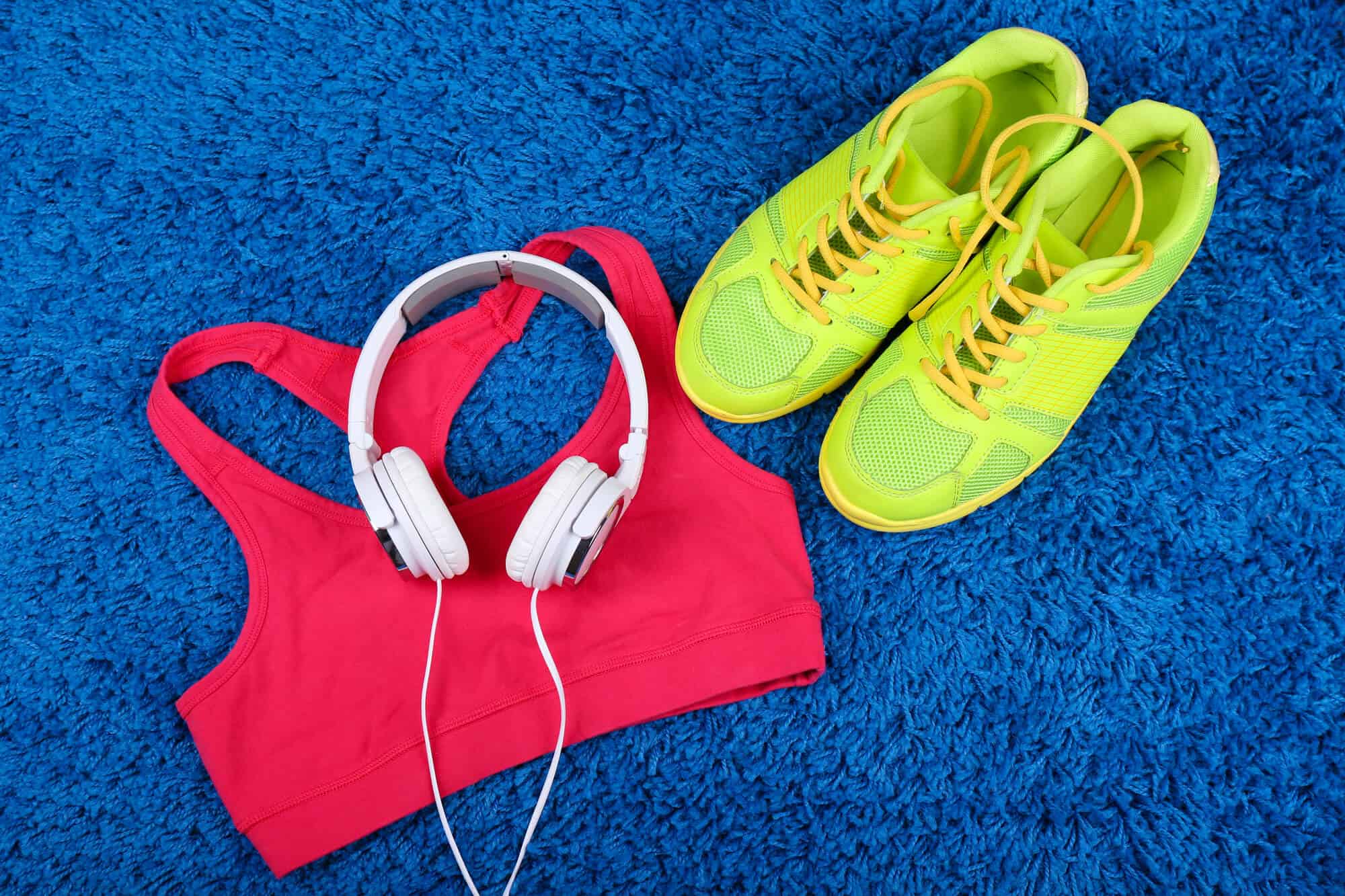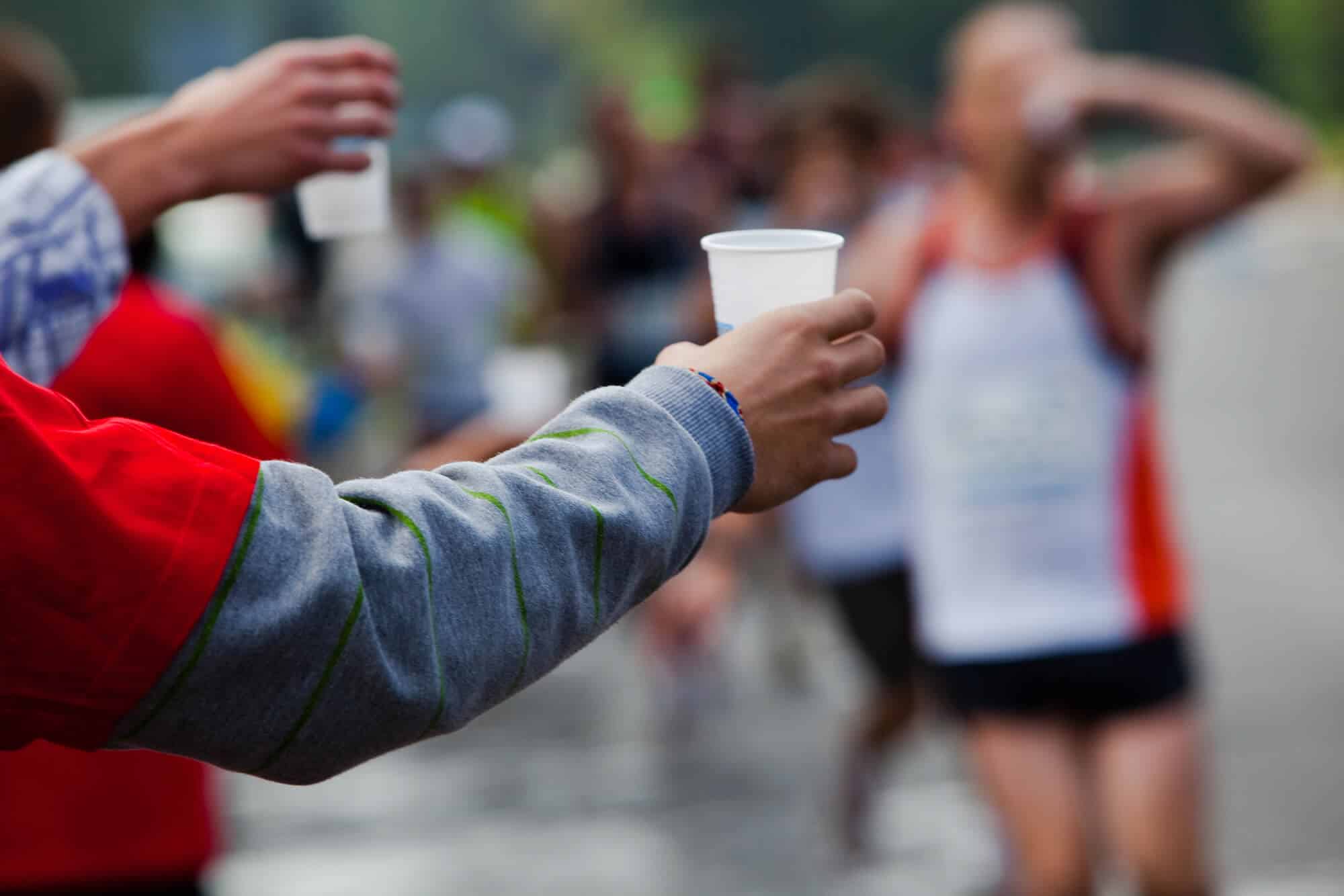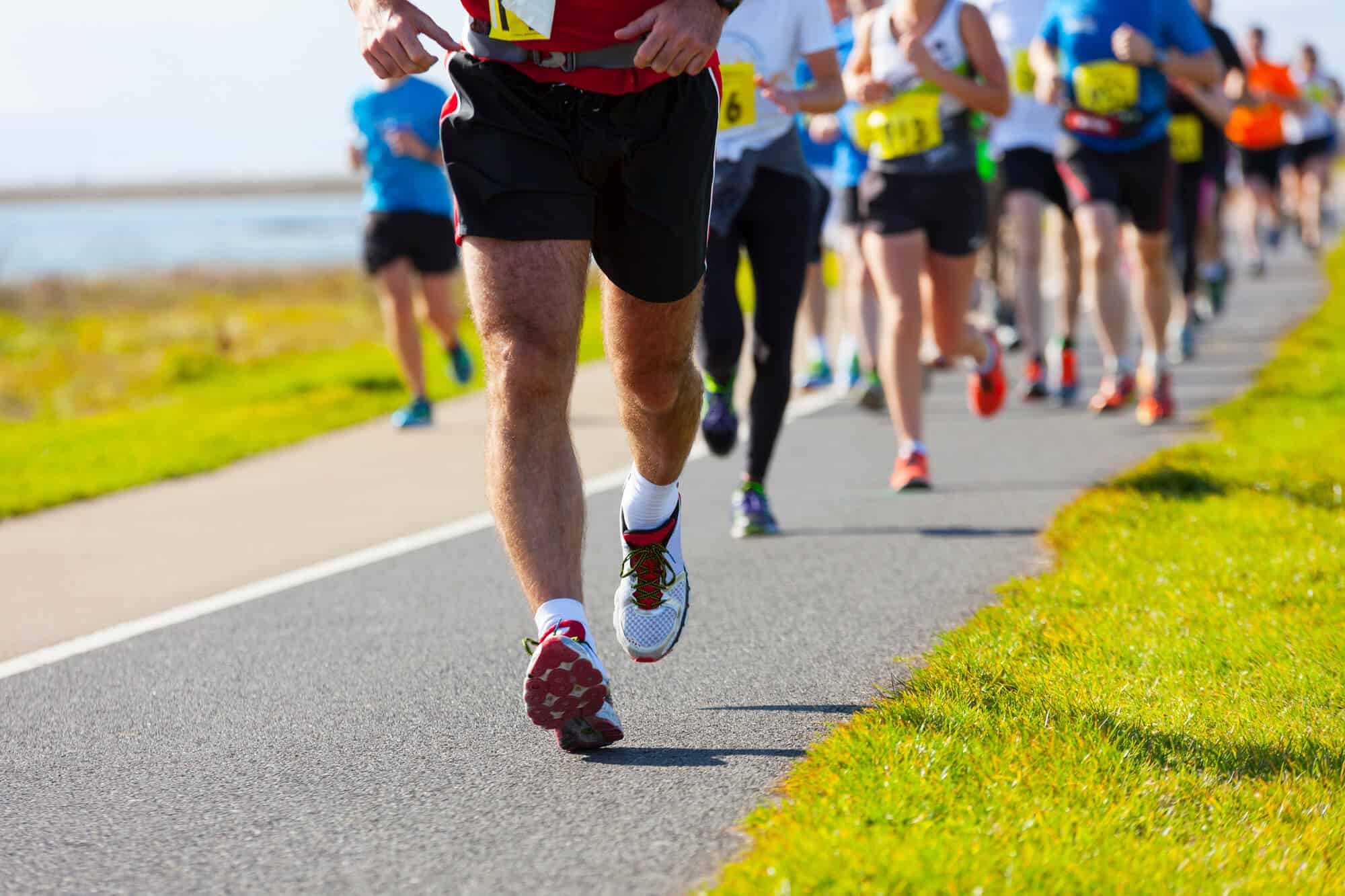For a beginner, running a half marathon for the first time might feel like a true challenge. However, you should know that the thought of running a 13.1 mile can be intimidating for almost anyone new to the race!
Luckily, running a half marathon won’t be half as bad if you prepare yourself mentally and physically for the race, and that’s what this article is all about.
In today’s guide, we’ll walk you through all the tips and tricks that you need to keep in mind in order to run a half marathon as a first timer.
Can You Run a Half Marathon without Previous Training?
Running a half marathon for the first time. Half marathons are 13.1 miles or 21.1 km long, which is considered a relatively long distance to run consistently, especially if you didn’t have a proper training plan before attempting it.
This distance requires weeks of preparations in order to build up enough endurance and stamina to run it at a decent pace and reach the finish line.
But with all that said, running a half marathon without previous training is still possible in some situations.
For example, if you do a lot of hiking and/or trail running, you might be able to take on the challenge. But even then, the race will take its toll on your body and mind.
In other words, some people with athletic tolerance might be able to run a half marathon without training but it won’t be a pleasant experience, but it’s still a challenge that some people are willing to take on!
How Long Does It Take to Finish a Half Marathon?
The time taken to finish the race will depend on several factors, such as your running endurance, training plan, age, gender, athletic build, and more. For that reason, your time will greatly vary as well.
Ideally, a beginner runner who is running the half marathon for the first time is expected to finish the race anywhere between 2.3 and 4 hours, provided that there was a proper training plan a few months ahead.
On the other hand, an experienced runner with a consistently high pace should be able to finish the race in under 120 minutes.

The world record for the fastest half marathon time ever belongs to the Ugandan Jacob Kiplimo, who was able to finish the race in 57 minutes and 31 seconds in November 2021.
When Should You Start Training for a Half Marathon?
Like the running time, training for half marathons will vary greatly depending on your general “running background”. Not only that, but it’ll also vary depending on your expected goals.
Ideally, a beginner should start training for a half marathon at least 3 to 4 months earlier. If you have a good marathon experience, you may be able to get prepared for the race in less time.
With that said, we highly recommend that you start training for a marathon at least 2 months before the race, even if you’re an experienced runner.
This way, you’ll be able to build up your running endurance and mileage without putting your body under too much stress.
What Should You Eat on Race Day Morning?
Eating before the race is essential to provide your body with enough energy before you go. On training days, make sure that you always eat a balanced meal and avoid excessive fiber intake because too much fiber increases the risk of runner’s diarrhea.
Also, make sure that you eat a familiar breakfast on your race day morning and avoid foods that irritate your stomach or cause any problems.
A typical healthy race day breakfast will include low fiber foods. This means that white bread is a better choice than dark bread.
Your breakfast may also include elements like oatmeal and low-fiber cereal, honey, bananas, and fruit juice.
Some might also suggest yogurt but this choice is not recommended for everyone, as you might have minor lactose intolerance that you’re not aware of.
The best practice here is to try different food combinations for your breakfast before training runs (especially hard runs) and stick to the ones that give you the most energy while keeping gut problems to a minimum.
What Should You Wear for a Half Marathon?
Your running gear will have a massive impact on your performance. Since we don’t want any surprises on training day, you should be using the same running gear at all times.
Running gear isn’t only for comfort or aesthetics, but specific items can also give you a competitive edge when they are used right.
For instance, you should always wear proper running shoes while training and during the race. A good running shoe will cushion your midsole area and provide support for your foot arch and ankle.
This doesn’t only improve your performance, but also protects you from early fatigue and reduces the stress on your feet, reducing the chances of an overuse injury like plantar fasciitis and runner’s knee.
Similarly, you need to wear suitable running clothes, including shirts, shorts, tights, undershirts, sports bras, socks (to avoid blisters), etc.
The golden rule here is to make sure that your clothes are geared towards proper ventilation and moisture wicking to reduce skin irritation while exercising.
If you’re racing in a sunny area, make sure that you also use quality sunscreen, sunglasses, hydration belts, and other essential gear while training.

Things to Keep in Mind When Running a Half Marathon For The First Time
Now that you know more about running a half marathon for the first time, here are some of the most valuable tips to keep in mind before the race in order to give your best on race day:
1. Consistency is Key
Staying consistent and persistent in what you do is the key to success. As you now know, a half marathon is not just about race day. Since the challenge takes months of discipline and self control, being consistent in your training should be your main priority.
In other words, if you miss out on a training session in one day, you shouldn’t worry too much about it, as long as you’re planning to stick to your schedule throughout the training period.
Additionally, achieving stellar numbers on one day and failing the rest won’t help you much on race day.
On the other hand, if you consistently build up your stamina and momentum, you’ll surely achieve much better results in the long run.
2. Get Yourself Familiar with Pacing and Running Economy
Running the entire marathon at a consistent race pace takes a lot of effort and management. Unlike 5K and 10K races, a half marathon is a much more demanding race that requires a decent understanding of running economy.
This one is defined as the amount of energy needed to run a certain distance at a specific submaximal velocity, which is also related to your respiration rate and oxygen consumption level in the blood (VO2).
If you’re aiming to finish the half marathon in around 2 hours, you’ll need to maintain an average pace of 9:15 minutes per mile. If you’re up for the challenge, you can try to maintain an average pace of 6:50 or faster.
3. Keep Yourself Motivated with Training Partners
Training solo has a lot of benefits, as it also tests out your planning skills and puts you in full responsibility and accountability for your progress.
However, taking all this as a beginner can be a little too difficult and borderline distracting. For that reason, we recommend that you look for training partners with common goals.
Due to the long preparation time of half marathons, training in groups will do an excellent job in helping you stay motivated during exercises.
4. Monitor Your Stats But Don’t Stress Them
As a beginner, you should know that finishing the half marathon is considered a great achievement on its own, regardless of the time it took you to finish the race.
For that reason, while we highly recommend using technology and monitoring gear like smartwatches and tracking bands, you should only use these numbers to keep track of your general progress and avoid stress over your numbers.
5. Try Planning Different Running Routes While Training
Monotonicity is one of the biggest problems that you’re going to face while training for a half marathon since you’re going to stick to a lot of routines. This includes your diet, schedule, running pace, recovery, and much more.
Although you should try to train on terrains similar to the half marathon course, it’s important that you try running on different routes every now and then in order to avoid getting bored.
Changing the scenery won’t only keep you interested and motivated while training, but it’ll also help you adapt to different situations while running the race.
6. Focus on Yourself
One of the biggest mistakes that some new runners make when they train for a half marathon is comparing themselves to others.
Half marathons should be a personal challenge that you need to take at your own pace. In other words, you should focus mainly on your own progress and set a specific plan that suits your own level of mental and physical preparedness.
7. Consider Hiring a Running Coach
If you’re too busy to set your own schedule or optimize your diet to suit your training, you might want to hire a running coach to help you with that.
In addition to setting a proper plan that won’t heavily impact your daily routine, running coaches are extremely knowledgeable and will provide you with a lot of tips to improve your running form and technique.
This won’t only help run faster and for longer, but it will also reduce the chances of injuries. Running coaches will also help you with motivation, as they’ll always keep track of your running pace, mileage, and timing.
8. Stay Hydrated at All Times
We can’t stress enough how critical hydration is while training or during the race. Drinking enough water will help in regulating your body temperature while running and sweating more efficiently.
Additionally, hydration and electrolytes are essential for calorie burning and energy production as well as injury prevention.

With that said, you should know that too much water means more toilet stops, which will slow you down if you have a target time in mind.
Ideally, you need to replace around 75% to 80% of the fluids lost while running, and replenish your hydration levels to the max once the race is finished.
9. Don’t Underestimate the Value of Rest Days
While training and preparing for the race, you won’t be running every day of the week. In fact, running and training continuously without proper rest will do more harm than good and increase the chances of injuries that can keep you off the track for a long time.
If you’re training for 2 to 4 months before a half marathon, make sure that you include two rest days every week as well as recovery sessions every day.
These recovery sessions should include foam rollers, icing your joints, deep tissue massage, etc.
10. Always Start Your Training Session with Stretching
According to studies in the sports medicine field, stretching before workouts is extremely necessary to avoid injuries.
This is because it improves the joints’ range of motion and helps in breaking off lactic acid accumulation in muscles from previous exercises.
On the other hand, make sure that you don’t over-stretch because it can also bring more harm than good. An ideal stretching and warming up session before running should last for around 5 to 10 minutes.
11. Incorporate Strength Training in Your Workouts
While running, you work a lot of muscles in your body, such as the glutes, the quads, the calves, etc.
Strength training and endurance exercises will help in improving your half marathon results significantly by strengthening these muscles.
Lower leg workouts and weight training will increase your body’s endurance and agility. This will allow you to run faster and for longer.
12. Never Try Anything New On Race Day
As you’ve probably noticed, making your race day seem like just another training day will help you shake off the nervousness and reduce the number of variables and unexpected surprises.
For that reason, avoid trying anything new on race day. This includes wearing a new outfit, trying new shoes, and consuming unusual food, supplements, or drinks.
13. Get to Know the Half Marathon Course Better
Speaking of being familiar with everything before the race, you might also want to do your research regarding the half marathon itself. This includes information like:
- The course of the half marathon
- The weather on that day
- The refueling station locations
Adjusting your training pace and an economy based on your half marathon course and conditions will help you perform at your best on race day!
14. Set Realistic Expectations for Your First Run
Last but not least, you need to always set realistic expectations when you’re running the race for the first time ever.
Overestimating your physical condition and pushing yourself too hard will make you discouraged to keep on training, so make sure that you’re honest with yourself and avoid putting your body under extreme pressure.
Final Thoughts
This wraps it up for today’s guide that walks you through everything you need to know before running a half marathon for the first time!
As you can see, running a half marathon for the first time may not be an easy feat, and it’ll take a lot of training and preparation, whether physically or mentally, in order to achieve.
Yet, by sticking to a proper plan and staying consistent, you’ll be able to cross that finish line with relative ease!
In the end, don’t forget to enjoy your time and remember that reaching race day ready is a great achievement to celebrate on its own, so you don’t have to worry much about the outcome as long as you’re moving forward!

